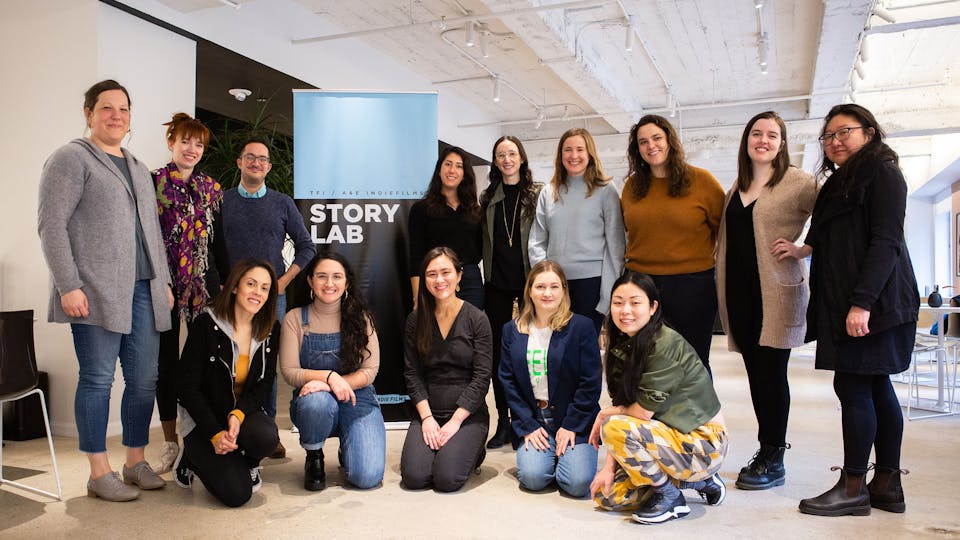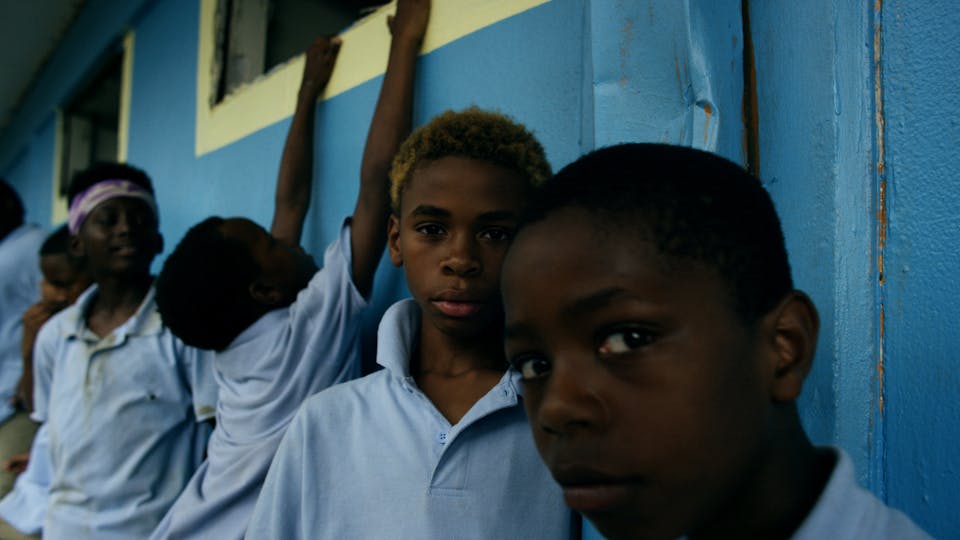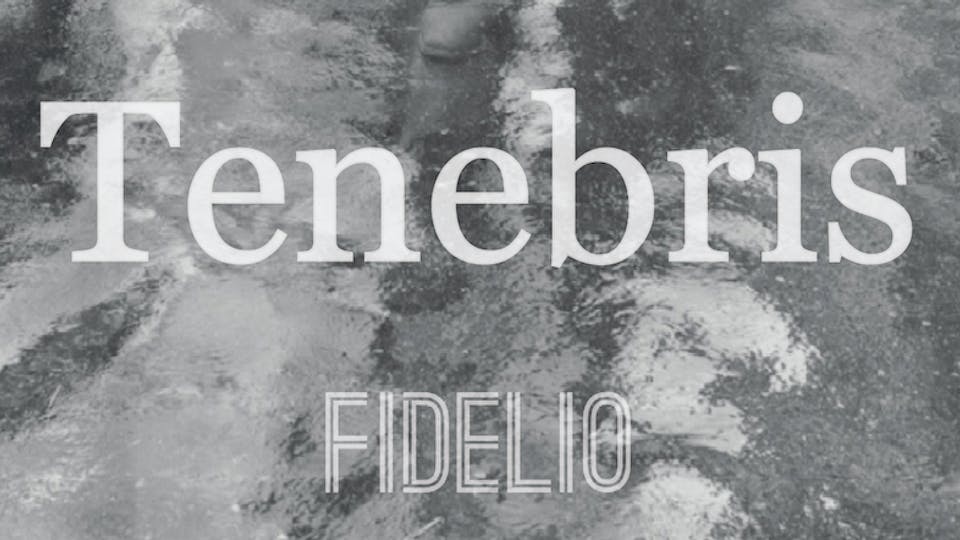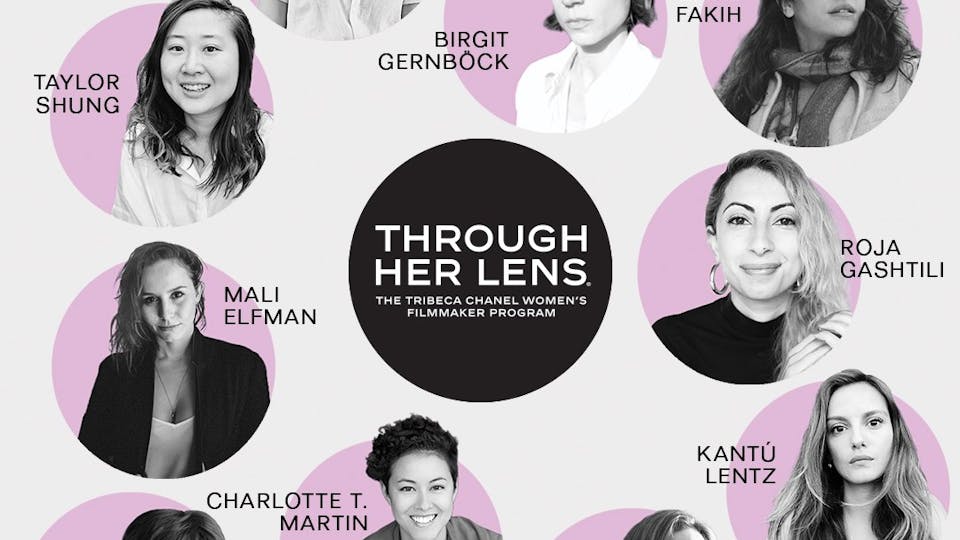Artist To Artist: Rachel Beth Anderson and Nisha Pahuja
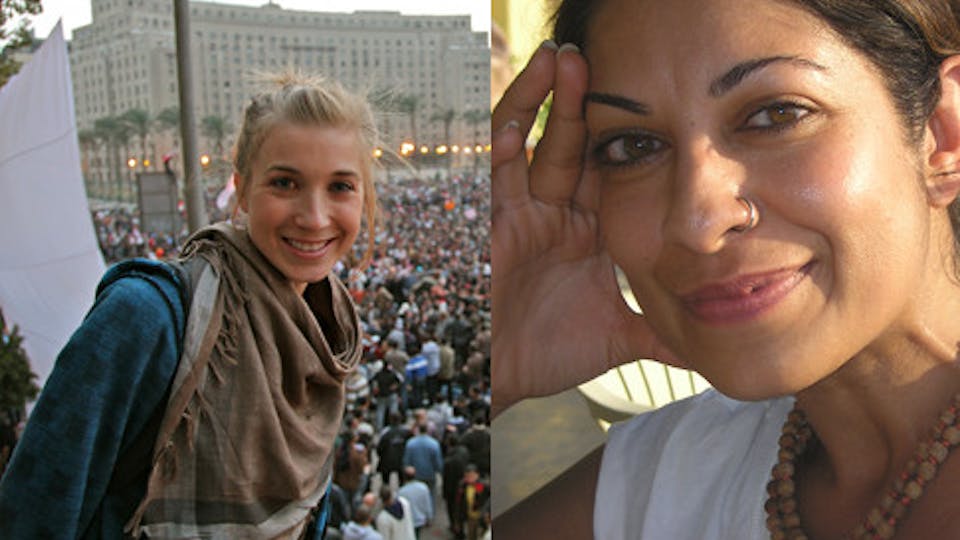
With submissions opening for the Gucci Tribeca Documentary Fund on Dec. 5, we thought for our latest Artist To Artist interview we’d have a chat with two Gucci alums who thanks to the fund have been able to bring their social conscious stories to life.
Rachel Beth Anderson is from our latest crop of grantees. Her film, First to Fall, is currently in post production and looks at the revolution in Libya through the eyes of two friends, Hamid and Tarek, who have picked up guns for the first time in their lives to join the rebel army to fight Gaddafi and reach their families. Nisha Pahuja is a 2011 grantee and her film The World Before Her has since found high acclaim as it won the Best Documentary Feature prize at this year’s Tribeca Film Festival and has since won other laurels on the festival circuit. The film, which is currently seeking U.S. distribution, looks at traditional and modern perspectives toward women in India as she explores the popular Miss India beauty pageant as well as the women’s wing of the Hindu fundamentalist movement.
Interviewed by TFI over the summer, Anderson and Pahuja discuss the challenges of getting documentaries made, why they feel the camera can protect them in any situation and the challenges of creating a bond with the film’s subjects while still telling the story they set out to make.
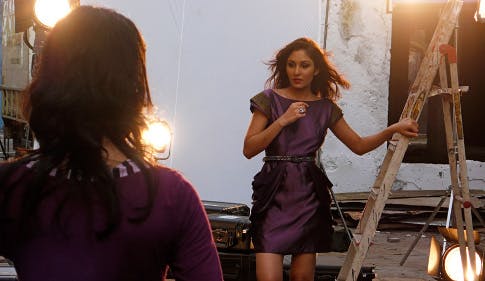
Rachel Beth Anderson: There’s so many things I want to discuss, but to start, this is my first big project and I’ve moved back to New York to do the editing and the funding—and I thought making the film would be hard. [Laughs]
Right? [Laughs]
Anderson: So do you have any advice for this stage?
Pahuja: How have you been raising the financing to this point?
Anderson: On the actual shooting there was a little bit of support at the beginning to get me going, but for the most part I’ve been funding this on my own. I’ve done that by having to stop filming and do another job for somebody else in the region. I just got back from Syria a week ago, so I go and do work in Syria to live in New York. [Laughs] But it’s great because I have something to live off of and concentrate on the film. When I was in Libya I was living off of the money I made from projects I did during the Egyptian Revolution, I was working for PBS Frontline. So now it’s finding that balance.
Pahuja: Have you applied for other grants other than Gucci?
Anderson: Yes, I’m waiting to hear back. Market Road Films in Brooklyn and Roast Beef Films in the UK, who are my producers for First To Fall, have helped me in applying for the grants and I’ve really leaned on them with questions I have about the industry since I’ve been doing it all myself. Also they have put their support behind me and are financing the basic edit costs until the remainder of the funding comes through.
Pahuja: It’s just gotten harder and harder to get documentaries off the ground and get them financed. All of these avenues of funding are drying up and broadcasters aren’t financing as many as they used to. I was on the phone with a distributor this morning and we were taking about this. It’s really amazing how Kickstarter has become this funding source. It’s extraordinary and sad at the same time, you have to reach out to the public to get your films made.
Anderson: I guess the good thing about that is you start to create an audience and a following before it’s even out there.
Pahuja: Yeah.
TFI: Nisha, what was the distribution/funding landscape like when you started making The World Before Her? Did you always peg it as a theatrical project?
Pahuja: Initially I wasn’t really thinking about if it would be theatrical or for broadcast, I was just thinking about how to make it. I think when we actually started it was four or five years ago and the industry, in Canada anyway, was just starting to go south. It was hit badly, so a lot of the avenues we’d reach out to had dried up and broadcast licenses were becoming smaller. Also, one-off documentaries were becoming less popular, so we began at a time when things were becoming difficult and that was one of the reasons it took so long to get the film made. We were raising money and shooting and investing our own money, very much what you are doing now, Rachel. But we were fortunate in that eventually we got some terrific broadcast partners and then impact partners in the States came on, and then we got grants from the Gucci Tribeca Doc Fund and Cinereach and that all helped. I also reached out to personal friends who gave loans. If it wasn’t for them I wouldn’t have been able to shoot the fundamentalist camp.
Anderson: What else made it difficult?
Pahuja: [Laughs] Everything was difficult. I think getting access to the camp took a couple of years and then filming the pageant. You would think filming the camp would be hard but the pageant was more problematic because it was so disorganized and the schedules of the girls were constantly changing. You could just never really follow any of them and follow a story. Originally the film was supposed to be a real journey where you saw the process of transformation in both worlds. You’d see a little fundamentalist girl go from innocence to innocence lost and see one of the pageant contestants go through the process of becoming a beauty queen, and we just weren’t able to do that. Which takes me to your film, because you were able to follow your characters for eight months, right?
Anderson: It’s been longer.
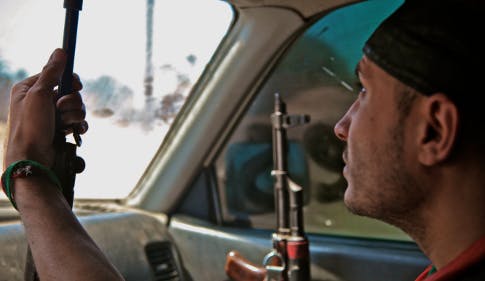
Pahuja: You’re still filming them?
Anderson: Yeah, I am. I’ve been able to film them for most of the eight months of the revolution that they were a part of in Libya. I actually have the last shoot for the film next week. So I would have spent a year and a half with them when it’s all said and done. At the beginning I decided to go to Libya a week after leaving Egypt and nobody knew what to expect. No one thought it would be a war, they just thought it would be a revolution like Egypt and Tunisia. I would film ten people a day just to get the different ideas until I finally found my two subjects, Hamid and Tarek. They had stories and they were going to continue on with the fighting. By then it was evolving into a war, so I went with my gut and followed them.
Pahuja: Do they change throughout the filming?
Anderson: Yes. For me this was my first major conflict to cover as well. But what they experienced and went through I also went through, so watching through the camera and watching it now, there are some moments that are hard to imagine that we went through. I met them before they’d ever touched a gun. The closest thing to a conflict they ever experienced was playing Call of Duty. So in the end they really turn into soldiers and I think that’s what’s important about this film. It’s not just about Libya, it’s about picking up a gun and leaving their innocence behind without really knowing what can really happen and what the consequences are.
Pahuja: How has going through this experience impacted you?
Anderson: I think it was an amazing thing to be in the front row of history and spend that much time on the ground. It was seeing these boys and all their friends and their families change and act different. Even the way they walked changed. If you just read the headlines you never fully realize who these people are behind the movements, so I was lucky to know it through these boys.
Pahuja: Watching your footage the main thing that kept coming back to me was “Weren’t you scared?” How did you handle the fear?
Anderson: I’m not one of those people who runs out to the front because I’m always more interested in what’s going on ten steps back. I feel like I serve a better purpose by doing that. But there’s always the unpredictability and I knew that that was a factor in doing this. And yes, there were some moments when you have uneasiness in your stomach, but it’s about staying calm and not being complacent. I always made sure to be with an English speaker and make sure I was with people who knew what was going on, simple things like having a second car so you know you have control. I don’t want to sound naive, I know no matter how much caution you take things happen, but it’s just something that you have to weigh, you know there’s an important story and if you weren’t there it would never get out.
Pahuja: Were you shooting the footage?
Anderson: Yeah. I was by myself the whole time shooting this, but they had their own cameras so some of the footage, the real raw moments, are from their cameras.
Pahuja: I know with a camera it’s almost like a shield in a way, like armor.
Anderson: I definitely think it is and it’s also a filter because you capture things that you never thought you’d see and I think the only way to realize what’s going on in front of you is to press record, not because you want to take advantage of the situation or be voyeuristic, but because you want to get it out there and it’s the truth.
I have some questions for you, Nisha, were you afraid for your safety in how your subjects would feel about the film, especially those in the camp you shoot in?
Pahuja: Yeah, and I think it’s still an issue in India. If the film is released there, which I doubt it ever will, yeah, it would definitely create conflict and I’m not sure how much that will be directed at me necessarily, but I would worry for Prachi [the main character highlighted from the fundamentalist group in The World Before Her] and her father. I actually showed the film to them a couple of months ago and they really, really liked it. I knew Prachi would like it but her father and mom liked it and thought it was fair and not sensationalist. There were all of these rumors going through the organization that I had betrayed them and it would be this sensationalist film. I think [the organization] decided they will never give access to a journalist again. A lot of them haven’t seen the film so it’s unfair for them to say that but I think there was so much fear about it that they don’t want to take that chance again.
In terms of me being personally afraid—I’m sure you feel this more than I do, but there’s a sense that danger can’t really touch you. I certainly felt that while I was researching and shooting—though not with the girls in the camps but with other characters who did not make it in the film.
Anderson: I think that’s the way you have to go about it because if you have a sense of vulnerability or fear you probably would never be able to get the access that you got. You probably had to be on their level, many of them seemed like they had no fear, like Prachi.
Pahuja: Oh yes, Prachi is fearless, she walks around with a big hunting knife in her bag. But part of it in terms of the intimacy and getting people to talk, it’s a function of time and how much time you spend with your characters. It’s also about them getting to know you. It becomes a relationship and a friendship, it’s not that they are the subjects and you are the director but that you are friends and you’re making this film together. You’re part of this collective.
Anderson: And that was the interesting part of it because I had never spent this much time with someone I was filming, so to know that line of how much you let them in, because you want to have the camera on them, it’s knowing when to turn the camera off and just let moments go by to build that trust. I think that’s what I learned from the making of this.
Pahuja: That’s interesting. When you decided to turn the camera off was it an inner voice or did they ask you?
Anderson: It was a combination. There were moments where I knew it may be viewed the wrong way or moments that I have captured that I know won’t make the film just because I know it won’t do anything to help tell the story. I’m saving them from themselves basically. There was a point where I was kicked out of my hotel and I had to go and live with them, so I was living with these guys and I had access to them 24/7 and they became my brothers. I depended on them to find me food, to give me shelter, to drive me everywhere. And at that point, I was really one of the only press corps left as a freelancer, so there wasn’t anyone left to depend on except for them.
Pahuja: It’s amazing how those boundaries begin to blur.
Anderson: Yes.
Pahuja: I know for Prachi there were things that she revealed of herself and her life that my editor and I decided we weren’t going to show to the world. In some ways you have to protect them, it’s almost like therapy.
Anderson: For my guys I don’t think they realized how much honesty was coming out because I didn’t realize. Until you go back and see the first frames of them you don’t really realize how much they physically changed. I would ask them, “Do you feel different?” And during the war they would say, “I don’t think about these things because then I would be sad and I wouldn’t be able to pick up a gun again.” But it changed six months after everything was over. There’s an honesty that comes out without them really realizing it.
Pahuja: What was it that made you want to do a long-form documentary?
Anderson: I guess when I originally went over to Libya that wasn’t the plan, though it wasn’t the plan to be on the ground for the length of the revolution. I was there and tried for a shorter project and didn’t get the funding, but since I was there and seeing this story that wasn’t being told I decided to stay and two months turned into three, turned into four, turned into five. The catalogue of footage I was capturing and the story revealing itself, it deserved the platform of the feature length. This isn’t a film you’re going to leave all warm and fuzzy, there’s a lesson you take away with and I felt the only way to show these moments and how these guys are just normal kids, there was a length of time you needed.
How were you guys able to objectively edit your films after growing so fond of your subjects?
Pahuja: I’m sure you felt this too Rachel, but you’re always two people when you’re a filmmaker because you need people to give you things. So you’re human because you’re relating to them and have tremendous affection for them and love for them and compassion for them but you’re also at the same time conscious of what they’re revealing to you and you’re thinking in your head, I know I do, as people are talking I’m thinking how am I going to use this? How is this going to advance my story? How do I now need to use this in the story and build from it? So you’re always aware, you’re always conscious of your story and what you need to tell your story. It’s really a strange position to be in, it’s a strange reality when you’re shooting. I could gauge from my crew when they were uncomfortable and I would think okay maybe I’ve pushed too much and sometimes they check you in that sense. It took my editor and I eight or nine months to edit the film and the first four months we were just looking at all the footage and talking. Talking about certain boundaries that we wanted to lay down, how much we wanted to reveal, story arcs and elements and ideas. It’s an immersive process.
Anderson: It’s interesting what you say about having the two halves because you have to have that trust but also remember that this is the moment you’ve been waiting for and you have to step away and listen to what they’re saying and capture everything around them because it’s going to be much larger than that one sentence. That one sentence has to be built upon so in the edit the audience understands how important this one tiny little item may be. I remember I had this moment back in July in Libya where I thought this is the final image you’re going to have of this character and I had to think of it as that and not as my friend or this person that I’ve known for a year and a half. Then when the camera was turned off I could go back to being this person in my life, so it’s definitely a strange thing to have to navigate through.
"First To Fall" Teaser from Rachel Beth Anderson on Vimeo.
Pahuja: Will you not use footage that they’re uncomfortable with, though you know it is great?
Anderson: I’m starting the main part of my edit, Luis Alvarez, next month so I know there are those moments that exist so I’m going to depend on him a lot because I know I’ll need that outside eye and his perspective. A majority of what I captured I was with them so what may be relevant to me may mean nothing to anybody else. There may be moments that I might be nervous to use, but it’s all about how it’s crafted that won’t hurt anybody while getting the point across that you need in the film, which was the whole reason you made it and went through this multi-year process. So I know I’m going to have a lot of sleepless nights, but I guess that’s part of the journey.
Pahuja: Are you going to make another movie?
Anderson: I hope so. This has been a major learning curve for me making my first major project on my own and I hope that I have the privilege of making another movie again and getting to know somebody else’s story this intimately. That’s what I love about this is the understanding you have for other people and these moments in there lives, there’s no other way to do this and we’re lucky that this is what we were chosen to do.
Pahuja: That’s the thing about documentaries that I love. That it isn’t fiction, that it’s real and these people really let you in and you get to see the world in a way that you just didn’t know before and it’s extraordinary.
[Photos: (Top to bottom) Still from The World Before Her, still from First to Fall]

